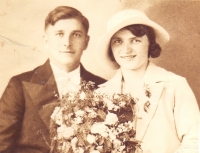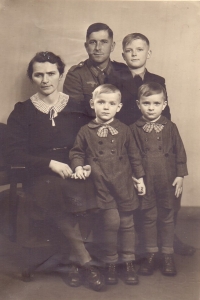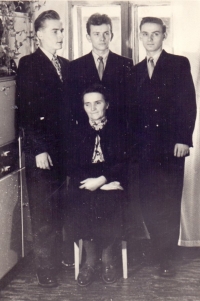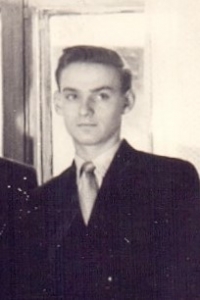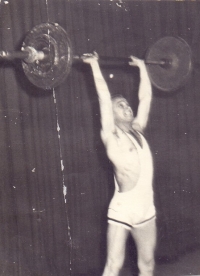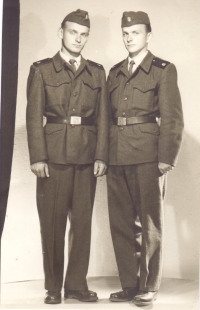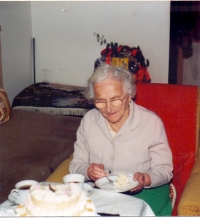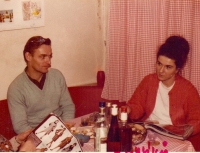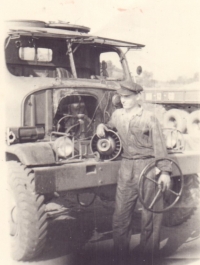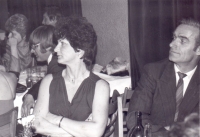The fault was German nationality, not the political activity
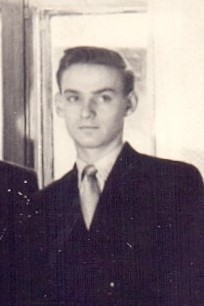
Download image
Jiří Kräussl was born on April 27, 1939 in Klášterec nad Ohří into a German family. His parents owned a small shop in the nearby settlement Útočiště. As a convinced social democrat, his father Franz rejected Nazi ideology. He was taken to forced labor twice, then taken to the Wehrmacht, where he served in a criminal company. He died clearing minefields. After the war, the widow and her three sons were to stay in an internment camp, their property was confiscated and they were deprived of their civil rights. After the dissolution of the camp in 1946, the family found housing in Klášterec nad Ohří. In the summer of 1947, the train took the Kräussl’s with other families to Příbram, where people could take the Germans as work labor. After three years of working for the forester in Dobříš, his mother managed to get a job in the Dobříš sanatorium and find an apartment where the family moved, and they were finally able to have a normal life. Jiří, like his twin brother, trained as a car mechanic in Ústí nad Orlicí. They returned to western Bohemia, to Kadaň, where Jiří got married in 1964. He and his wife Jana had a son, Jiří, and a daughter, Jana. Throughout his life, Jiří tried to achieve redress and wrongful confiscation of property. To date (2020), the family has not received any compensation or apology. In 2020, the witness Jiří Kräussl lived in Kadaň.
